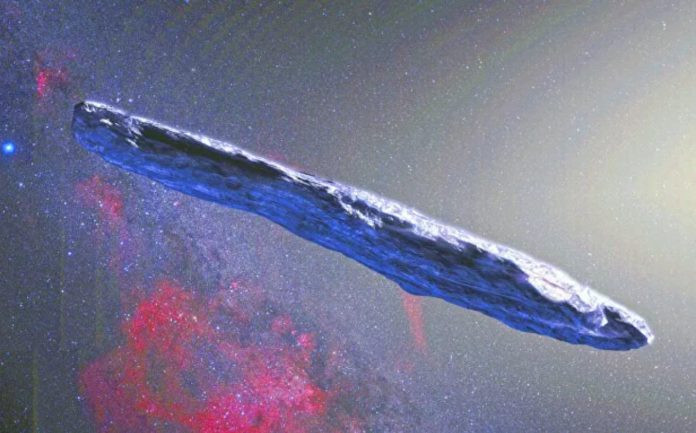Avi Loeb, president of Harvard University’s Department of Astronomy, believes that an unidentified object that entered our solar system in 2017 is evidence that there are other civilizations in the universe.
The object in question, named Oumuamua by astronomers, entered the orbital plane of our solar system on September 6, 2017. It continued moving until, about a month later, it passed the Earth before moving rapidly toward the constellation of Pegasus and “the darkness beyond”, detailed Loeb in his book Extraterrestrial: the first sign of intelligent life beyond the Earth, which will be released in the coming weeks.
The object was first detected by an observatory in Hawaii, home to the Pan-STARRS, the highest definition telescope on our planet. While it was not possible to record sharp photos of Oumuamua, astronomers were able to follow the object for 11 days, collecting other revealing data about it.
Scientists initially thought it was a normal comet, but Loeb is certain that the mysterious object is actually some technology discarded by an intelligent alien civilization.
Loeb bases his theory on some unusual properties of the object, the first being its shape, which scientists believe is similar to that of a cigar. No known space body of natural origin has this shape.
Also, the “Oumuamua was unusually bright.” According to Loeb, it was at least “ten times more reflective than typical [stony] asteroids or comets in the solar system.” The academic compared the surface of the object to shiny metal.
- Does This Mean We Stopped Being Animal and Started Being Human Due to ‘Copy Paste’ Errors?
- The One Lifestyle Choice That Could Reduce Your Heart Disease Risk By More Than 22%
- Aging: This Is What Happens Inside Your Body Right After Exercise
- Immune-Boosting Drink that Mimics Fasting to Reduce Fat – Scientists ‘Were Surprised’ By New Findings
- Gun Violence in America: What They Don’t Talk About at the Debate
But the anomaly that really made Loeb believe in the object’s alien origin is the way it moved through our solar system. Due to the gravitational force exerted by the sun, scientists are able to calculate the exact path an object must follow, as well as the speed at which it must travel. Oumuamua, however, did not follow the path predicted by the specialists.
That is, it is as if the object was being propelled by a force other than the gravity of the sun. While comets show similar acceleration as they approach the sun, but none of such processes were detected at Oumuamua.
Analyzing the data, Loeb and a colleague hypothesized that the object was not actually shaped like a cigar, but possibly a disk less than a millimeter thick, with proportions similar to candles. This would explain its unusual acceleration when moving away from the sun.
The professor at the prestigious university suggests that Oumuamua could be alien “space junk”. The scientist believes that, at some point, the object was used by an extraterrestrial civilization as a kind of space navigation buoy.
Loeb acknowledges that his theories have surprised astronomers and that many remain skeptical of them. The academic, however, remains firm in his belief that Oumuamua is an object of extraterrestrial origin.
“Some people do not want to discuss the possibility of other civilizations. They believe that we are special and unique. I think it is a prejudice that should be abandoned,” he told the New York Post.
Loeb’s book will be released in the United States on January 26.
